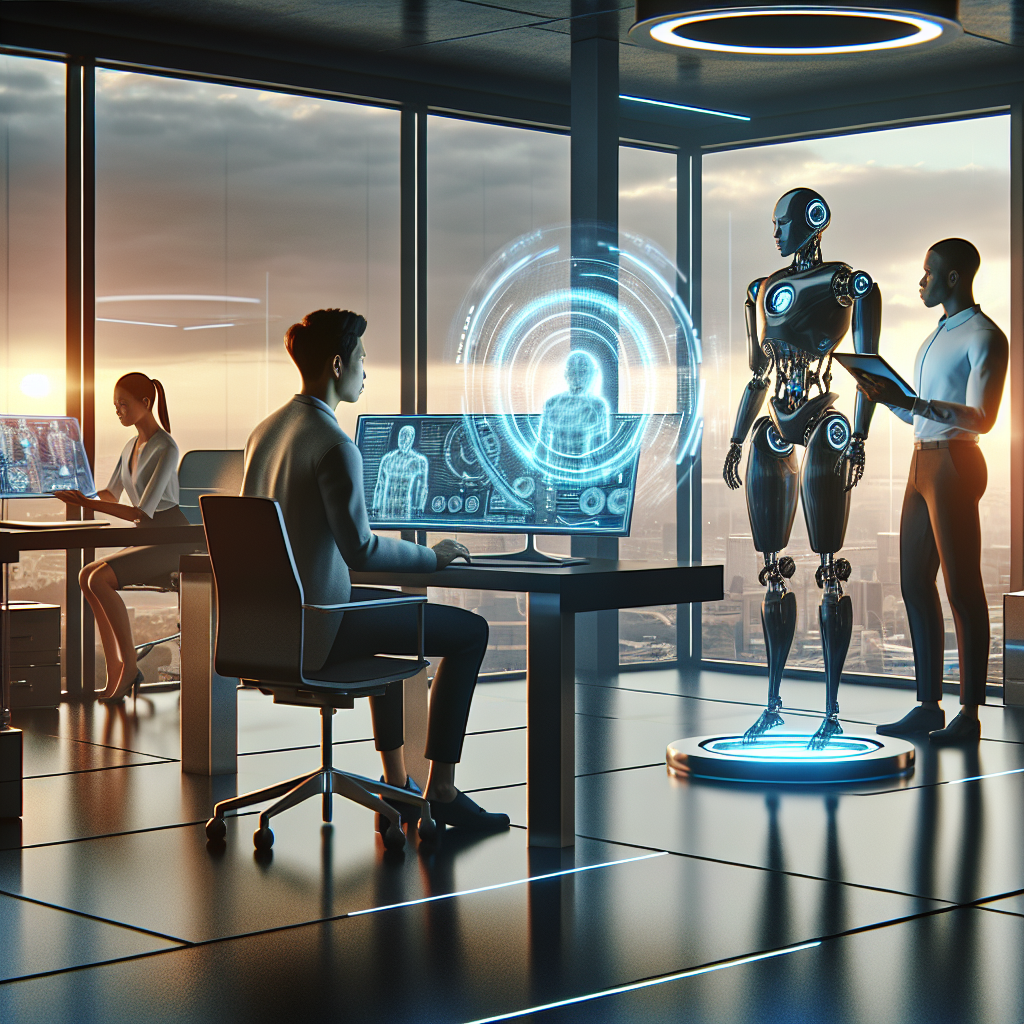The Impact of AI Deployment on the Workforce
Artificial Intelligence (AI) has been a hot topic in recent years, with businesses across various industries exploring its potential to streamline operations, improve efficiency, and drive innovation. While AI has the potential to revolutionize the way we work, there are concerns about its impact on the workforce. In this article, we will explore the potential implications of AI deployment on the workforce and address some common questions and concerns.
AI Deployment and Job Displacement
One of the primary concerns about AI deployment is the potential for job displacement. As AI technology continues to advance, there is a fear that automation will replace human workers in various industries. For example, AI-powered chatbots are already being used to handle customer service inquiries, while autonomous vehicles are poised to disrupt the transportation and logistics industry.
While job displacement is a legitimate concern, it is important to note that AI deployment also has the potential to create new job opportunities. As AI technology becomes more prevalent, there will be a growing demand for skilled workers who can develop, implement, and maintain AI systems. Additionally, AI deployment can free up human workers from mundane tasks, allowing them to focus on more creative and strategic work.
Upskilling and Reskilling the Workforce
As AI technology continues to evolve, it is essential for organizations to invest in upskilling and reskilling their workforce. This involves providing training and development opportunities for employees to acquire the skills needed to work alongside AI systems. By investing in upskilling and reskilling programs, organizations can ensure that their workforce remains competitive in a rapidly changing technological landscape.
Additionally, governments and educational institutions play a crucial role in preparing the workforce for the age of AI. By offering training programs and educational initiatives that focus on AI-related skills, they can help workers adapt to the changing labor market and thrive in the digital economy.
The Role of AI in Augmenting Human Work
While AI has the potential to automate certain tasks, it is important to recognize that AI is not a replacement for human workers. Instead, AI has the potential to augment human work by enhancing productivity, improving decision-making, and enabling workers to focus on higher-value tasks.
For example, AI can analyze vast amounts of data and provide insights that can inform strategic decision-making. By leveraging AI technology, organizations can make more informed decisions that drive business growth and innovation. Additionally, AI can automate routine tasks, freeing up human workers to focus on more complex and creative work.
FAQs
Q: Will AI technology replace all human workers?
A: While AI has the potential to automate certain tasks, it is unlikely to replace all human workers. AI technology is best suited for tasks that are repetitive, data-driven, and rule-based. Human workers excel at tasks that require creativity, critical thinking, and emotional intelligence.
Q: What skills will be in demand in the age of AI?
A: In the age of AI, skills such as data analysis, programming, machine learning, and artificial intelligence will be in high demand. Additionally, soft skills such as creativity, critical thinking, and emotional intelligence will be valued as they are difficult for AI systems to replicate.
Q: How can organizations prepare their workforce for the age of AI?
A: Organizations can prepare their workforce for the age of AI by investing in upskilling and reskilling programs, providing training opportunities for employees to acquire AI-related skills, and fostering a culture of continuous learning and innovation.
Q: What are the ethical implications of AI deployment on the workforce?
A: AI deployment raises ethical concerns related to privacy, bias, and job displacement. Organizations must ensure that AI systems are developed and deployed ethically, with safeguards in place to protect individual rights and prevent discrimination.
In conclusion, the impact of AI deployment on the workforce is complex and multifaceted. While there are concerns about job displacement and ethical implications, AI also has the potential to create new job opportunities, enhance productivity, and drive innovation. By investing in upskilling and reskilling programs, organizations can prepare their workforce for the age of AI and ensure that they remain competitive in a rapidly changing technological landscape.

